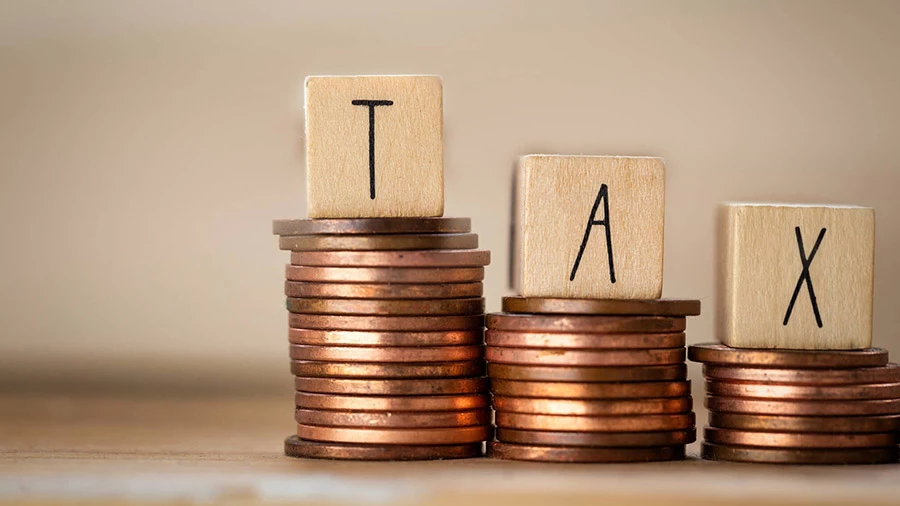Tax incentives
Tax incentives are preferential tax policies offered by the government to incentivize or encourage a particular economic activity or to support disadvantaged business owners or individuals. From the investor’s perspective, tax incentives are legitimate tools for reasonable tax planning and cost savings. They are also a useful indicator of market trends and government priorities.
China has implemented a series of preferential tax policies that has attracted a large number of foreign capital and foreign-invested enterprises and effectively promoted the adjustment and optimization of various industrial structures.
There are multiple forms of tax incentives available to businesses, such as tax exemptions, tax reductions, lower tax rates, tax refunds or rebates, tax credits, etc. Tax incentives are usually based on:
Type of tax
China has 18 different types of taxes for individuals and businesses, some of which are eligible for more incentives than others on tax obligations like corporate income tax (CIT), value-added tax (VAT), and individual income tax (IIT).
For example, according to the Catalogue for Administration of Preferential CIT Policies released by the State Taxation Administration (STA), there are in total 69 different CIT incentives that are available to enterprises.
These include:
- CIT exemption on certain type of incomes, such as dividends, bonuses, and other equity investment income between qualified resident enterprises;
- CIT reductions on certain incomes, such as income derived from eligible technology transfer;
- Additional pre-tax deduction of certain expenses, such as research and development (R&D) expenses;
- Tax credits for certain costs, such as the investment in seed-stage or start-up technology enterprises;
- Lower CIT rates (the standard CIT rate is 25%) for certain types of enterprises, such as high-tech companies or enterprises in certain regions, such as companies engaging in encouraged sectors in China’s western areas; and
- Accelerated depreciation or one-time deduction of the value of fixed assets.
Similarly, there are preferential tax policies under VAT, IIT, and other type of taxes. Enterprises can examine if there are any tax incentives available by reviewing the taxes one by one.
Further, foreign individuals working in China can enjoy tax-exempt benefits on the following eight categories:
- Housing rental expense;
- Education expense for children;
- Language training expense;
- Meal fee;
- Laundry fee;
- Relocation expense;
- Business travel expense; and
- Home leave expense.
These benefits are known as benefits-in-kinds, or BIKs – which refer to additional perks not included in the salary and wages but paid on reimbursement and non-cash basis.
Such BIKs are exempt from IIT provided that the expenses are reasonable in amount and there are corresponding supporting documents, such as invoices (fapiao), for each expense.
Size of businesses
Since smaller businesses are at a disadvantage in competitive markets due to limited capital and human resources, the government provides tax incentives to support their development and help them survive and thrive during difficult times.
For example, small and low-profit enterprises, as per the latest policy, can enjoy:
|
Corporate Income Tax Cuts for Small and Low-Profit Enterprises |
||||
|
Annual taxable income (ATI) |
Tax base |
CIT rate |
Effective CIT rate |
Effective period |
|
The portion below RMB 3 million |
ATI*25% |
20% |
5% |
2023.1.1-2027.12.31 |
Here, small and low-profit enterprises refer to enterprises engaged in industries that are not prohibited or restricted by the government and should fulfill the following criteria:
- Reporting an annual taxable income not exceeding RMB 3 million (approx. US$458,500);
- Number of total employees not exceeding 300 persons; and
- Total assets not exceeding RMB 50 million (approx. US$7.7 million).
China also provides other tax incentives to “small- and medium-sized enterprises” and “small-scale VAT taxpayers”, both of which are subject to different standards. Enterprises are suggested to carefully study the qualifications to see if they apply.
Sector-wise
China provides sector-wise tax incentives for specific purposes, such as to guide industrial upgrades, to support the development of the sector, or to respond to the special characteristics of the sector.
For example, to strengthen its semiconductor industry, China has rolled out a wide range of favorable policies for the integrated circuit (IC) and software industries.
Among others, multiple preferential CIT incentives have been granted to:
- Encouraged IC production enterprises and projects based on the line width of the product and the expected operation period of the enterprises;
- Enterprises engaging in IC design, equipment, materials, packaging, and testing; and
- Qualified software enterprises are also eligible for certain levels of CIT incentives, starting from the first profit-making year of the enterprises.
Similarly, preferential VAT and import duty policies are also available for the IC, software, and other industries.
Region-based
China provides region-based tax incentives to encourage investments in certain less attractive areas or to give comparative advantages to more economic zones. Region-based tax incentives are usually connected to the industrial ecosystem.
For example, a lower CIT rate of 15% is available for enterprises if they make investments in encouraged industries in China’s western regions before December 31, 2030.
Besides preferential CIT policies, other noticeable region-based tax incentives in specific regions are the IIT refund policy provided in the Guangdong-Hong Kong- Macao Greater Bay Area (GBA) and the Hainan FTP for the portion of IIT paid that exceeds 15% of the taxable income, although the policy details and application procedures are different in each region.
In addition, preferential VAT and import duties are implemented in certain regions.
Do foreign-funded companies have equitable access to tax incentives?
FIEs and domestic companies can generally apply for tax incentives equally, based on their qualifications, while local governments can offer specific tax incentives as they see fit to attract foreign investment.
How to enjoy tax incentives in China?
China has simplified the procedures to enjoy tax incentives. For most preferential tax policies, taxpayers can self-assess if they are qualified to access the incentives and apply them when making the tax payment (that is, the time of pre-payment or final settlement, depending on the specific incentive) – without seeking approval from the local tax bureau.
However, this does not mean taxpayers can enjoy tax incentives at will, either. Taxpayers must retain relevant documents for potential inspection from the tax bureaus. Some of the required documents may involve a special application and approval process with relevant government bureaus, such as those for high-tech enterprises and IC and software enterprises. To gain eligibility for IIT refunds in certain regions also require taxpayers to apply to relevant tax bureaus.
Non-tax incentives
Exemption on imported equipment and land prices
Foreign-invested enterprises (FIEs) engaged in doing business in the listed industries published in the encouraged catalogue are subject to the following exemptions:
Tariff exemptions on imported equipment
For foreign-invested projects, the self-use equipment imported within the project’s total investment as well as the technology, supporting parts, and spare parts imported together with the equipment according to the contract, can be exempted from the customs duties. However, these imports will still be subject to the import value-added tax (VAT).
If there is any foreign good listed in the Catalogue of Imported Goods for Foreign Investment Projects Not Exempted from the Duties and the Catalogue of Imported Major Technical Equipment and Products Not Exempted from the Duties – the imported goods will not be eligible for duty exemption.
Encouraged industrial enterprises producing goods originating from Hainan that do not contain imported materials or contain imported materials but with an added value exceeding 30% after processing of imported intermediary products in Hainan are exempt from import tariffs when entering the rest of China.
Access to preferential land prices and looser regulation of land uses
Land can be preferentially supplied for encouraged foreign-funded projects with intensive land use. The land transfer reserve price can be determined at 70 % of the national minimum price for the transfer of industrial land, which yet shall be no less than that of the local land.
Other preferential policies
In addition to the duty exemption on imported equipment and parts, encouraged foreign-investment projects can also enjoy the following favorable policies:
- More flexibility in hiring talents;
- Shorter turnaround in dealing with government administration; and
- A lower threshold in financing, etc.














